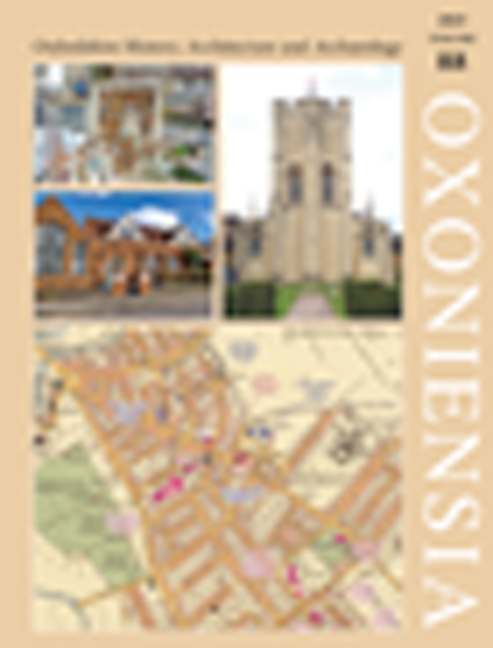Prehistoric Landscape and Late Iron Age Agriculture South of Banbury: Excavations at Wykham Park Farm and Bloxham Road
Published online by Cambridge University Press: 15 May 2024
Summary
SUMMARY
Two adjacent excavations on the southern outskirts of Banbury recorded an extensive landscape of prehistoric features. Neolithic evidence, some of it probably representing activities associated with the adjacent Wykham Farm causewayed enclosure, included a pit and a tree-throw hole that contained sherds of early Neolithic Plain Bowl pottery, a pair of pits with middle Neolithic Mortlake Ware, and a feature that produced a late Neolithic radiocarbon date and is likely to represent a cremation burial or a pair of such features. A group of three unurned cremation burials was attributed to the middle Bronze Age on the basis of radiocarbon dates from two of them, and an isolated inhumation burial was radiocarbon dated to the early Iron Age (late sixth or fifth century cal BC). No other features or artefacts from either of these periods was found, suggesting that the burials were located away from areas of settlement. Following an apparent hiatus of several centuries, there was a burst of settlement and agricultural activity that extended from the first century BC to the end of the first century AD. Two discrete enclosures may represent successive late Iron Age settlements, and a field system continued into the early Roman period, when a third enclosure, possibly for livestock, was constructed beside it. The features form part of an extensive though short-lived episode of occupation, and it is possible that the Iron Age enclosures represent the pastoral component of a farmstead with a domestic and arable focus represented by a complex of enclosures that has been separately excavated in the fields adjacent to the east.
Oxford Archaeology (OA) and Museum of London Archaeology (MOLA) undertook adjacent excavations on former agricultural land on the southern outskirts of Banbury in advance of separate housing developments. The MOLA site, known as East of Bloxham Road, was excavated between November 2014 and March 2015 and comprised a sub-rectangular arable field within the interstice formed by the junction of Bloxham Road and Salt Way, a historic route now used as a bridleway. The OA investigations were undertaken at Wykham Park Farm between November 2019 and May 2020 and encompassed six excavation areas situated across six fields to the south and east, as well as the footprint of a drainage outfall that extended to the south (Fig. 1).
- Type
- Chapter
- Information
- Oxoniensia , pp. 73 - 108Publisher: Boydell & BrewerFirst published in: 2024

